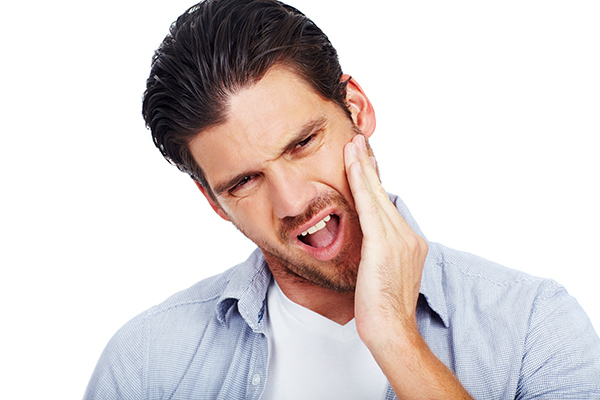TMJ Therapy
Do you have jaw pain and a clicking, popping or grating jaw joint? Don’t know? Put your pinky into your ear canal with the finger nail toward the back of your head, open and close your mouth. Many patients say “Yes, it’s been doing that for years but it’s never bothered me before”! You have to admit, that’s just not normal, even if it’s been doing it for a long time. That clicking/popping sound is your jaw joint dislocating! I’m sure if any other joint in your body had been making those noises, you would have run to the doctor to find out what’s wrong. Do you clench or grind your teeth during the day or night? Has your jaw ever locked open or closed? Are your teeth sensitive to cold and worn down? Can you open wide enough to get three fingers vertically in your mouth? Dizziness, ringing in the ears, headaches, neck/shoulder or back pain?
All these symptoms and more can be the result of a temporomandibular disorder called (TMD). This term describes a group of problems related to the temporomandibular joint (TMJ) and the very powerful surrounding muscle groups. Your symptoms can come and go without any apparent reason, be painful and frustrating, but they can be treated non-surgically! We have been successfully treating patients with these disorders for many years, and look forward to helping you achieve a life free of headaches and pain. Please take the time to read some of the testimonials from our patients.
Causes and Symptoms
These symptoms include:
- Vertigo, Dizziness
- Ringing sound or fullness in the ears
- Chronic headaches
- Limited jaw movement and jaw pain
- Pain in shoulder, back, neck, or behind the eyes
- Problems with head posture and neck stiffness

Am I affected?
The severity of these conditions may range from intermittent and mildly noticeable, to seriously debilitating pain. Too often patients endure a frustrating and expensive doctor to doctor search to find answers for relief of symptoms. Many patients with TMD have been mistakenly diagnosed with Fibromyalgia and are on medication to control their pain.
These symptoms are not all inclusive for TMJ disorders, but represent some of the most common complaints that clinicians hear from their patients. Click on the TMJ Disorder Patient Form on this website and see many of the typical chief complaints from which patients suffer. Some of these symptoms are observed in many divergent clinical conditions and it is important that the patient undergo a thorough clinical examination and history by a qualified, but more importantly, experienced practitioner.
What Can I Do?
Surgery is indicated in 3% of patients and must be your last course of action. At The Center for Sleep & TMJ Disorders, patients benefit from the non-surgical, conservative treatment our office provides. Once pain is controlled and the jaw joint is stabilized, the bite is balanced so that teeth, muscles and joints all work together without strain or pain. Initially, treatment addresses the pain. Secondly, function is restored. Thirdly, the patient is stabilized. Our skilled team consists of neuromuscular dental professionals who are here to help you restore your jaws to keep your smile and bite comfortable. Because problems associated with the jaw joints can be progressive, accurate and immediate diagnosis and treatment is crucial to prevent further damage that can prevent a full recovery. A consultation is the first step in finding the answers you seek.


